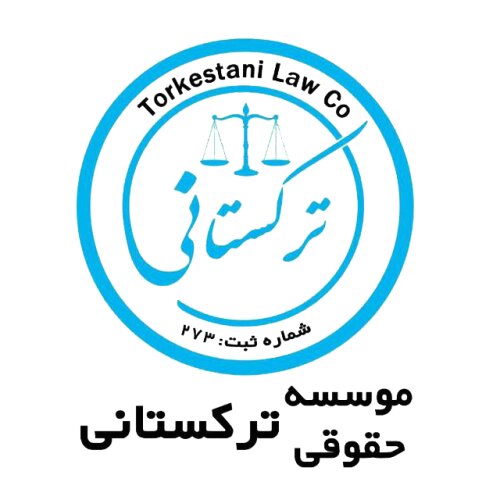Best Collaborative Law Lawyers in Tehran
Share your needs with us, get contacted by law firms.
Free. Takes 2 min.
Free Guide to Hiring a Family Lawyer
List of the best lawyers in Tehran, Iran
About Collaborative Law in Tehran, Iran
Collaborative Law in Tehran, Iran, is an emerging area of legal practice aimed at resolving disputes in a cooperative and non-adversarial manner. This approach emphasizes collaboration between parties, often involving family law matters such as divorce, child custody, and estate planning. The goal is to negotiate a mutually acceptable agreement without going to court, thus saving time, reducing conflict, and minimizing costs. Collaborative Law is gaining traction in Tehran as more individuals and families seek amicable solutions to their legal challenges.
Why You May Need a Lawyer
There are several situations where you might need legal help in Collaborative Law:
- If you are considering a divorce and want to avoid a contentious court battle, a Collaborative Law approach may be beneficial.
- When dealing with child custody or support issues, Collaborative Law provides a framework for reaching agreements that prioritize the child's welfare.
- If you're involved in family business disputes or estate planning, Collaborative Law can help resolve differences through dialogue and negotiation.
- When conflicts arise in contractual relationships or community issues, a collaborative approach can often lead to more satisfactory outcomes for all parties involved.
Local Laws Overview
The legal framework in Tehran, Iran, supports Collaborative Law by providing guidelines that facilitate negotiation and resolution outside the courtroom. Key aspects include:
- The Civil Code, which outlines the rights and responsibilities of individuals in family matters and agreements.
- The Family Protection Law, which emphasizes the welfare of children and supports mediation and collaborative approaches in family disputes.
- Regulations that encourage mediation and arbitration as alternative dispute resolution methods.
- The recognition of Collaborative Law agreements, provided they conform to applicable legal standards and are voluntarily entered into by all parties involved.
Frequently Asked Questions
What is Collaborative Law?
Collaborative Law is a legal process aimed at helping parties resolve disputes amicably without going to court. It involves open communication, negotiation, and problem-solving to reach a mutual agreement.
How does Collaborative Law differ from traditional litigation?
Unlike traditional litigation, which is adversarial and often contentious, Collaborative Law focuses on cooperation and finding solutions that benefit all parties involved. It is non-combative, aiming to resolve issues respectfully and efficiently.
What type of issues can be resolved through Collaborative Law?
Collaborative Law is often used for family-related matters, including divorce, child custody, spousal support, and estate planning. It can also be applied to business disputes and other interpersonal conflicts.
Do I need a lawyer for Collaborative Law?
Yes, having a lawyer who is trained in Collaborative Law is essential. They will guide you through the process, facilitate negotiations, and help draft agreements that protect your interests.
Is Collaborative Law legally binding?
Yes, agreements reached through the Collaborative Law process can be legally binding, provided they are formalized correctly and comply with local laws.
How long does the Collaborative Law process take?
The duration of the Collaborative Law process can vary depending on the complexity of the issues and the willingness of the parties to cooperate. However, it is generally quicker than traditional litigation.
What happens if the collaborative process fails?
If the collaborative process does not result in an agreement, parties may still choose to go to court. However, the collaborative lawyers involved typically withdraw, and new legal representation is sought for litigation.
Can Collaborative Law save me money?
Often, yes. While there are legal fees involved, the collaborative process can save costs associated with lengthy court proceedings and minimize the emotional toll related to traditional litigation.
Who participates in Collaborative Law sessions?
Typically, sessions will involve the parties, their respective collaborative lawyers, and, in some cases, other professionals, such as financial advisors or child specialists, who can provide guidance on specific aspects of the dispute.
Is Collaborative Law suitable for everyone?
Collaborative Law is best suited for parties who are willing to communicate openly and work towards a joint resolution. It may not be suitable for situations involving domestic violence or where one party is unwilling to cooperate.
Additional Resources
For more information and assistance regarding Collaborative Law in Tehran, consider reaching out to the following resources:
- Tehran Bar Association: Provides a list of qualified lawyers specializing in Collaborative Law.
- Family Court of Tehran: Offers resources about family law and alternative dispute resolution methods.
- Local mediation centers: Facilitate the collaborative process and offer professional mediation services.
Next Steps
If you need legal assistance in Collaborative Law, consider taking the following steps:
- Research and contact a lawyer who specializes in Collaborative Law to discuss your situation.
- Prepare any relevant documents or information that may be necessary for your case.
- Be open to communication and negotiation to work towards a positive resolution.
Lawzana helps you find the best lawyers and law firms in Tehran through a curated and pre-screened list of qualified legal professionals. Our platform offers rankings and detailed profiles of attorneys and law firms, allowing you to compare based on practice areas, including Collaborative Law, experience, and client feedback.
Each profile includes a description of the firm's areas of practice, client reviews, team members and partners, year of establishment, spoken languages, office locations, contact information, social media presence, and any published articles or resources. Most firms on our platform speak English and are experienced in both local and international legal matters.
Get a quote from top-rated law firms in Tehran, Iran — quickly, securely, and without unnecessary hassle.
Disclaimer:
The information provided on this page is for general informational purposes only and does not constitute legal advice. While we strive to ensure the accuracy and relevance of the content, legal information may change over time, and interpretations of the law can vary. You should always consult with a qualified legal professional for advice specific to your situation.
We disclaim all liability for actions taken or not taken based on the content of this page. If you believe any information is incorrect or outdated, please contact us, and we will review and update it where appropriate.

















